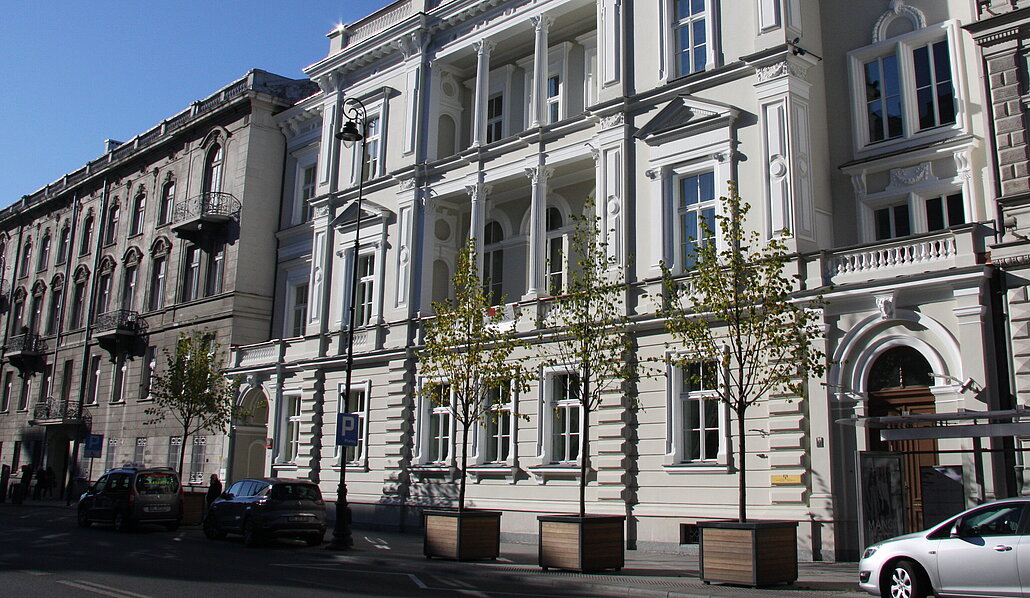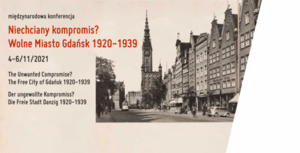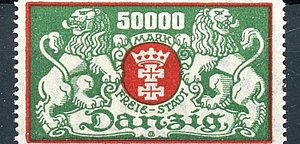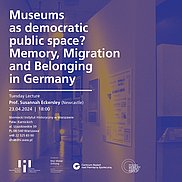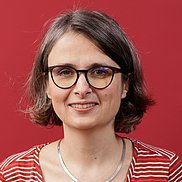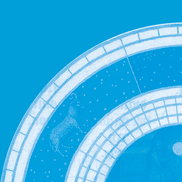Podczas trzech dni konferencji „Niechciany kompromis? Wolne Miasto Gdańsk 1920–1939”, wysłuchamy 22 referatów przygotowanych przez badaczy dziejów Wolnego Miasta Gdańska z sześciu krajów. Obrady rozpoczęły się w czwartek, 4 listopada, w Dworze Artusa. W piątek i w sobotę organizatorzy zapraszają do biblioteki Europejskiego Centrum Solidarności. Poniżej przedstawiamy szczegółowy program. Transmisje obrad można śledzić na stronach gdansk.pl i ecs.gda.pl.
- Okres tak zwanego drugiego Wolnego Miasta Gdańska to temat wciąż budzący emocje pokoleń Polaków pamiętających dwudziestolecie międzywojenne i lata II wojny światowej – mówi Basil Kerski, dyrektor Europejskiego Centrum Solidarności, jeden z organizatorów konferencji.
- Organizatorzy mają nadzieję, że konferencja pozwoli zrozumieć, dlaczego obecność niewielkiego postwersalskiego tworu politycznego na mapach świata była niechcianym kompromisem – podsumowuje Waldemar Ossowski, dyrektor Muzeum Gdańska. I dodaje: - Konferencja była planowana na stulecie powstania Wolnego Miasta Gdańska, przypadającą w roku 2020, ale ze względu na czas pandemii zapraszamy na nią dopiero teraz.
W organizację konferencji zaangażowanych jest pięć instytucji naukowych z Polski, dwie uczelnie, trzy instytucje muzealne i miasto Gdańsk.
PROGRAM
5/11/2021 | PIĄTEK | Europejskie Centrum Solidarności - biblioteka
9.00-10.45 Sekcja I | Wolne Miasta przed Wolnym Miastem
- prof. Ralf Roth, Frankfurt | Szczęśliwy czas. Wolne Miasto Frankfurt 1816–1866
- prof. Andrzej Chwalba, Kraków | Zgniły kompromis. Wolne Miasto Kraków
- prof. Miloš Řezník, Warszawa | Pierwsze Wolne Miasto Gdańsk
dyskusja
10.45-11.15 przerwa
11.15-13.00 Sekcja II, część 1 | Wolne Miasto Gdańsk - perspektywy wewnętrzne
- dr Bennet Brämer, Berlin | Konstytucja Wolnego Miasta Gdańska w perspektywie porównawczej
- dr Jan Daniluk, Gdańsk | Oblicza nowoczesności. Radio w Wolnym Mieście Gdańsku
- prof. Grzegorz Berendt, Gdańsk | Migracje do Wolnego Miasta i z Wolnego Miasta
dyskusja
13.00-14.30 przerwa
14.20-16.45 Sekcja II, część 2
- mgr Adrian Mitter, Toronto/Marburg | Wolne Miasto Gdańsk jako centrum legalnego i nielegalnego handlu
- prof. Marek Kornat, Warszawa | Polska polityka wobec Wolnego Miasta Gdańska
- dr Jerzy Łazor, Warszawa | Gdańsk, Gdynia a francuski kapitał w Polsce w dwudziestoleciu międzywojennym
- prof. Luciano Segreto, Florencja/Gdańsk | Niemożliwa oferta. Gospodarka i finanse Wolnego Miasta Gdańska
dyskusja
16.45-17.15 przerwa
17.15-19.45 Sekcja II, część 3
- mgr Andrzej Trzeciak, Gdańsk | Międzywojenna stocznia gdańska (Danziger Werft) jako polska współwłasność oraz sytuacja jej polskich pracowników 1918-1939
- dr Magdalena Staręga, Gdańsk | Ludwig Noé - przemysłowiec, inżynier, polityk i dyplomata
- prof. Jacek Friedrich, Gdańsk | Symbolika Wolnego Miasta
- mgr Jagoda Załęska-Kaczko, Gdańsk | Nazyfikacja przestrzeni publicznej w Wolnym Mieście Gdańsk (wybrane zagadnienia)
dyskusja
6/11/2021 | SOBOTA | Europejskie Centrum Solidarności - biblioteka
9.30-12.30 Sekcja IV | Porównania
- dr Martyn Housden, Bradford | Liga Narodów a Gdańsk
- prof. Ruth Leiserowitz, Warszawa | Zazdrosny o Gdańsk. Międzywojenne perspektywy z Kłajpedy
- prof. Raoul Pupo, Patrick Karlsen, Triest | Wolne Miasto Fiume, Wolne Terytorium Triestu: porównanie
- dr Marco Bresciani, Florencja | „Gdańsk nad Adriatykiem”. Powojenna dyskusja o Wolnym Terytorium Triest
- prof. Wojciech Skóra, Słupsk | Gdańska arkadia szpiegowska. Wolne Miasto jako miejsce konfrontacji i współpracy służb wywiadowczych państw europejskich
dyskusja
12.30-14.00 przerwa
14.00-16.00 Sekcja V | Wolne Miasto Gdańsk - historia pamięci
- prof. Peter Oliver Loew, Darmstadt | Wolne Miasto Gdańsk żyje dalej
- prof. Miłosława Borzyszkowska-Szewczyk, Gdańsk | Figury pamięci – interpretacje – dialogi.
- Obraz Wolnego Miasta Gdańska w autobiografiach autorów pochodzenia żydowskiego
- dr Magdalena Sacha, Gdańsk | Wolne Miasto Gdańsk – między granicą realną a fantomową
dyskusja
16.00 Podsumowania
organizatorzy
prof. Grzegorz Berendt, prof. Miłosława Borzyszkowska-Szewczyk, prof. Jacek Friedrich, Basil Kerski, dr Przemysław Ruchlewski, dr Judyta Bielanowska,
prof. Edmund Kizik, prof. Peter Oliver Loew, Adrian Mitter, prof. Miloš Řezník, prof. Luciano Segreto, dr Ewa Szymańska
instytucje uczestniczące
Deutsches Polen-Institut Darmstadt, Niemiecki Instytut Historyczny w Warszawie, Uniwersytet Gdański, Politechnika Gdańska,
Instytut Historii im. Tadeusza Manteuffla Polskiej Akademii Nauk, Herder-Institut Marburg, Muzeum Gdańska,
Europejskie Centrum Solidarności, Muzeum Narodowe w Gdańsku, Instytut Kaszubski, Miasto Gdańsk
On 15 November 1920, the founding of the Free City of Danzig was officially announced. What the great powers at the peace conference in Paris had conceived one and a half years before as a compromise solution would turn out to be quite problematic. In the nearly 19 years of its existence, the Free City of Danzig was worn down by the competing claims of Germany and Poland. It fell into the clutches of the National Socialists despite the supervision of the League of Nations and eventually became the place where the Second World War broke out with the bombardment of the Westerplatte.
The 100th anniversary of the day of the Free City of Danzig’s founding provides the opportunity to recapitulate its history, to discuss its continuing influence on the present, and to compare it in the context of other city-states.
Key questions of the conference will be: What conclusions can be drawn from an analysis of the functioning of city-states in the age of modern state formation and dominating nation state for the category of statehood? To what extent are states that - like the Free City of Danzig -- were designed and that owed their existence to compromises between balance of power interests, actual places of freedom? Or are they condemned to unfreedom because of their many dependencies?
To what extent do they represent alternatives to the national state model? Moreover, do they rather become focal points of national claims and thereby exceptions that underline the dominance of the nation state "rule" in discursive and political ways?
To what extent were or are modern city states also spaces of economic freedom and what role do they play in regional and international economic fields? To what extent do "free cities" as non-nation states develop their own social, political or cultural identities? How do they fulfill the state functions intended for them, and who benefits from their existence? And what is their after-life: Do they, if they come to an end, serve as mythical spaces of remembrance for later generations, or are they rather negatively connoted?
How is their existence symbolically charged or politically exploited, and how are they re-appreciated in marketing, tourism or identity in the current experience-driven society?
Our conference consists of four parts. The first two parts will present the state of research on the Free City of Danzig and showcase new academic work on its history. The third part will present other examples of urban micro-states, from the Free City of Krakow to Rijeka / Fiume or Trieste, from the Free City of Frankfurt to the urban petty states of today such as Monaco or Singapore. The fourth part focuses on their historical memory.
The conference languages are Polish, German and English (simultaneous translation will be provided). A publication of the conference proceedings is planned.
Organization Team: Prof. Dr. hab. Grzegorz Berendt (University of Gdańsk), Prof. Dr. hab. Jacek Friedrich (National Museum Gdańsk), Basil Kerski (European Solidarity Centre Gdańsk), Prof. Dr. hab. Edmund Kizik (Tadeusz Manteuffel Institute of History Polish Academy of Sciances), PD Dr. Peter Oliver Loew (German Poland-Institute Darmstadt), Adrian Mitter M.A. (University of Toronto / Herder-Institut Marburg), Prof. dr. Miloš Řezník (German Historical Institute Warsaw), Prof. dr. Luciano Segreto (Gdańsk University of Technology / University of Florence)
Organizers: German Poland-Institute Darmstadt, German Historical Institute Warsaw, Gdańsk University, Gdańsk University of Technology, Polish Academy of Sciences Gdańsk, Herder Institute for Historical Research on East Central Europe, Muzeum Gdańska, European Solidarity Centre, National Museum Gdańsk (tbc.), Institute of National Remembrance – Gdańsk (tbc.).

